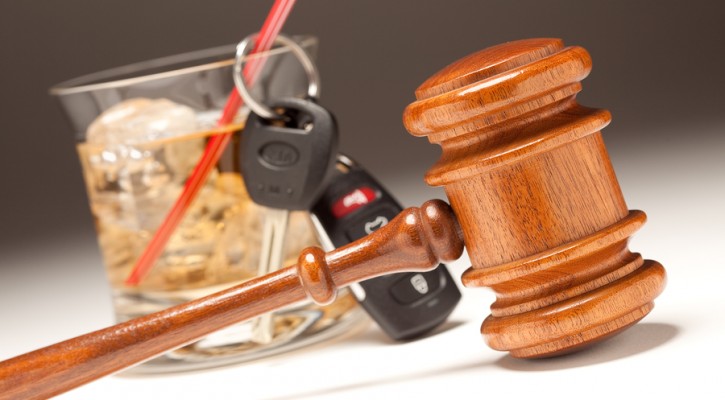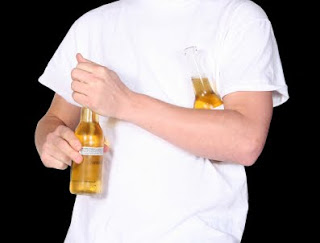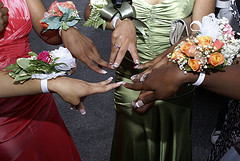Category Archive: Drunk Driving

Teens: Celebrate Your Graduation Safely
May 14, 2010
Graduation is finally here! Let me guess, you suddenly feel older, more mature, and ready for anything? You are on your way into the work force or heading off to college. Either way, freedom is within reach and it is time to celebrate! There are so many parties, dinners, and other events, all in you and your peers’ honor. Temptation will surround you. Peer pressure will be high, and the euphoria of the event will be a different pressure. You may think something like, “if I have one drink, it is not a big deal, I deserve to celebrate.” You may hear, “just have one drink, it won’t hurt you.” Before you give into the temptation, know the facts. It could save your life, a friend’s life, or a stranger’s life.
Did you know?
- 40, 000 people die every year in motor vehicle accidents
- 16,000 of those deaths are alcohol or drug related
- Graduation night is one night where impaired driving is most likely
- There is a zero tolerance law for impaired driving under the age of 20
What are possible consequences of impaired driving?
- Death of you, a friend, or stranger
- Serious injury of you, a friend, or stranger
- Loss of scholarships
- Incarceration
- Suspension or Revocation of your driver’s license
- Fines
Think about this before you drink/drug drive. You have a best friend that you have known since you were eight years old. You both are excited about the after graduation party. You drive you and your best friend to the party. You both decide to have a few drinks and you even take a hit off the joint being passed around. After all, it is your night and you have the right to celebrate. That is the last thing you remember and now you are waking up in the hospital. You are seriously injured, but far worse, you find out that your best friend was killed in a car accident on the way home from the party, and you are responsible. Situations like this have happened before and it CAN happen to you? Do you want to wake up in the hospital with serious injuries and someone telling you that you are responsible for the death of your best friend? I doubt it.
What can you do to keep yourself and others safe?
- Don’t drink or take drugs
- If you are impaired, call for a ride (taxi, sober friend or family member, ect.)
- Have a designated driver
- Do not get in a car with anyone who is impaired
- Sleep over
We can’t predict what others may do. So if you are riding with friends, have a plan if they become impaired. Know who you can call, be willing to ask for the keys, and if possible find out if they plan on drinking before going to the party with them. You may need to make alternate arrangements to get to the party.
It is an exciting time and you should celebrate your success. Your success can end in a matter of seconds with one bad decision. True freedom comes with smart decisions. Celebrate your entry into your adult life by making good decisions on your graduation night. Stay safe by staying sober.

Open Container Law
March 22, 2010
Everyone knows that you cannot Drink and Drive but it usually refers to a party, restaurant or bar. They are aware of drunk driving and what steps are needed to avoid a DUI. Such things as a designated driver or calling a taxi to prevent a crash are used to avoid the extensive penalties for an alcohol related crash.
Many are not aware of something called the Open Container Law.
In 1998, The Transportation Equity Act for the 21st Century, known as TEA-21 included the Restoration Act which is a Federal program to encourage states to pass laws that would prevent someone from possessing or consuming an alcoholic beverage while they are driving or in the passenger areas of a vehicle. If a state does not pass this type of law, a portion of their funding for highway construction would have to be set aside for enforcing drunk driving laws, and provide countermeasures for alcohol impaired drivers.

How to Deal with Underage Drinking: Tips for Parents
September 15, 2009
Restricting your teen’s access to alcohol is one of the most important things you can do for them as a parent. There are highly-publicized risks of fatal alcohol poisonings and devastating motor vehicle crashes due to drinking and driving, for example. But there are other, less-publicized risks that could be equally destructive to your teen’s health and well-being, such as increased risk of sexually transmitted diseases and unintended pregnancy, violence and rape, and suicide.
Of course, underage alcohol use has consequences other than legal ramifications:
- Early alcohol use, independent of other risk factors, strongly predicts the development of alcohol dependence. Of all people who ever meet the diagnostic criteria for alcohol dependence in their lifetime, nearly half do so by age 21 and two-thirds by age 25.
- Due to differences between the adult brain and the brain of the maturing adolescent, many young drinkers:
- Are able to consume much larger amounts of alcohol than adults before experiencing the negative consequences of drinking, such as drowsiness, lack of coordination, and withdrawal/hangover effects.
- Are particularly sensitive to the positive effects of drinking, such as feeling more at ease in social situations; young people may drink more than adults because of these positive social experiences (NIAAA, 2009).
- Recent evidence suggests adolescent drinking can inflict permanent damage on the developing brain (National Research Council and Institute of Medicine, 2004).
To help your teen avoid the use of alcohol and its attendant problems, maintain an ongoing, open dialogue about underage drinking and the risks involved. Make sure she understands that underage drinking is never acceptable. The fact that she is at a party or it is a special occasion or that some parents might “look the other way” when their teenage children drink alcohol does not change the fact that underage drinking is illegal and very dangerous. If your teen is attending a party at a friend’s house, make sure her friends’ parents don’t intend to provide alcohol; this is illegal in every state. You might be surprised to discover that other parents plan to provide their teens and their friends with alcohol in a “safe” manner and location. Make sure your teen understands that other adults can’t give her permission to drink alcohol. An alternative is to talk to your teen about organizing a get-together at your own home.
If you and your teen decide to host a party, make a guest list with your teen. Limit the number of teens so you can be sure of adequate chaperonage. Be sure you have contact information on each teen’s parent. Make sure guests and their parents understand that if a teen leaves the party, he won’t be allowed to return and parents will be called. Make sure parents who won’t be chaperoning know the start and end times of the party and will prearrange transportation. Collect all keys so you can keep track of who is arriving and leaving. Keep coats and purses in an area that can be monitored. Speak to each person before he leaves; check for warning signs of impairment. If a guest arrives at the party already under the influence of alcohol or other drugs, keep him there while you call a parent to pick him up. If he leaves and someone is hurt or injured, you could be held responsible.
When your teen spends the night at a friend’s house or goes to a party, call the hosting parent to find out the details. Make sure the hosting parent shares your concerns about the availability of alcohol and that none will be permitted. Ask how much supervision will be provided. Volunteer to chaperone and provide transportation. Let your teen know that you will not approve any outing without sufficient notice so you can speak to the hosting parent first. If your teen will be riding anywhere, at any time, with a friend, make sure it is with someone whose parents do not permit the use of alcohol. Teens are at great risk when riding with other teens, even under the best of circumstances. Talk to your teen about a back-up plan in case something goes wrong.
When your teen is going out for a special event, have her make a record of the planned itinerary for the evening and make sure she agrees to inform you of any changes. Be alert to spontaneous changes in plans on the night of the event; your teen won’t have as much control over the situation if it takes place in an unfamiliar location and/or with people she doesn’t know well. In the excitement of the evening, she could end up in a risky situation before she realizes what is happening.
Create a code with your teen so he can signal for help without attracting the attention of friends. If you don’t know how to text, ask your teen to give you a few lessons; texting is a much easier way for you to communicate than via phone. When you arrive to pick up your teen, he can blame you for having to leave or you can give the excuse of a “family emergency.” Make an agreement that if you do have to pick him up, a discussion about the reason can be tabled until the next morning, when you and your teen are both calm and safe. Otherwise, your teen may avoid calling you for help because he doesn’t want you to know about the circumstances that required the ride home.
And, last but certainly not least, realize that your teen is vulnerable to making poor choices every day. Don’t let your guard down. Finding a balance between being too controlling and allowing too much freedom will require constant effort, but it is a worthwhile endeavor. Your teen’s health and happiness may depend on it.

A Pre-Prom Plan for Avoiding Alcohol
May 6, 2009
Prom is an exciting event in the lives of many teens, who are preoccupied with buying dresses or renting tuxedos, selecting corsages and boutonnieres, choosing formal hairstyles, and making post-prom plans. But prom can also be a dangerous time for teens who choose to drink alcohol or ride with other teens who drink. You must plan ahead in order to ensure your own safety.
First, you need to understand that underage drinking is never acceptable. The fact that prom is a special occasion or that some parents might “look the other way” when their teenage children drink alcohol does not change the fact that underage drinking is illegal and very dangerous. If you are attending a party at a friend’s house, make sure your friends’ parents don’t intend to provide alcohol; if they do, tell your parents. This is illegal in every state. An alternative is to talk to your parents about organizing an after-prom party of your own.
If you will be riding with a friend, make sure it is someone whose parents do not permit the use of alcohol. You’ll still need to have a back-up plan in case something goes wrong. Create a code with your parents so you can signal for help without attracting your friends’ attention. If your parents don’t text, give them a few lessons before prom night; texting is a much easier way for you to communicate than via phone. If you need a ride, you can text a code that means “Please come get me!”, such as “Dinner was great!” When your parent arrives to pick you up, tell your friends you have a family emergency. Talk to your parents ahead of time about being able to call for a ride with no questions asked until the next morning, when you are calm and safe. However, if anyone at the event you are leaving is in danger of hurting themselves or others, you’ll need to tell your parent right away.
Make a record of your planned itinerary for the evening, and agree to inform your parents of any changes. Be alert to spontaneous changes in plans on the night of the prom; you won’t have as much control over the situation if it takes place in an unfamiliar location and/or with people you don’t know well. In the excitement of the evening, you could end up in a risky situation before you realize what is happening. This is why it’s especially important not to drink any alcohol at all, even a little; because even a small amount of alcohol reduces inhibitions and impairs judgment, you may react emotionally while under the influence without considering the consequences of your behavior.
Remember that the use of alcohol by teens increases the risk of activities that may result in serious long-term consequences, including:
- Use of other drugs (alcohol is a gateway drug because its use compromises judgment and reduces inhibitions)
- Driving under the influence
- Alcohol poisoning from binge drinking (teens often binge drink to relax and may participate in drinking games that result in ingestion of large quantities of alcohol in a short period of time)
- Increased sexual activity and multiple sexual partners due to lowered inhibitions, which increases the risk of pregnancy and/or sexually transmitted diseases
- Exacerbation of underlying, perhaps undiagnosed, mental illness
- Violence and rape (whether the victim is under the influence or not)
- Suicide
Planning for an alcohol-free prom may be a challenge, but doing so will help you have a safe, happy prom night.
Spring Break Safety – How to Identify an Impaired Driver
March 18, 2009
Many spring breakers drive to and from their vacation destinations. Spring break drivers are often relatively inexperienced due to their youth and may have difficulty navigating hazardous driving situations. One way to manage the risk is to spot impaired drivers early so you can increase your space cushion. This way, if the impaired driver causes a crash, you are much less likely to be part of it.
Although the term “impaired” typically refers to drivers who are under the influence of alcohol, for the purposes of this article, it refers to any driver who is exhibiting difficulty with the driving process. A driver may be “impaired” by drowsiness, confusion, distractions inside or outside their vehicle, aggression, talking on a cellular phone, or a variety of other causes. For those who are sharing the road with an impaired driver, the most important issue is that the other driver is impaired; the specific reason isn’t as significant, because the reactions of other drivers should be the same regardless of the source of the impairment.
You should scan the general behavior of other vehicles when you search the driving scene, noticing any drivers who are:
- Drifting within their lane
- Speeding or driving at erratic speeds (speeding up, then slowing suddenly)
- Weaving in and out of lanes
- Exhibiting odd behavior, such as stopping for a green traffic light
- Displaying aggressive behavior, such as following too closely
Once you recognize that a driver is impaired, you must increase the amount of space between your vehicle and theirs. Motorists are often tempted to pass a driver who may be impaired, but this option is dangerous because it decreases the space between you and the impaired driver, even if only temporarily. The point of identifying impaired drivers is to note their unpredictability. If the impaired driver makes another mistake while you are passing, you could be involved in a crash.
Take the following actions when you recognize an impaired driver:
- Reduce your speed. This will increase your following distance if you are behind the impaired driver. Also, reducing your speed will allow you to more safely take other actions, such as changing lanes.
- Continue scanning the driving scene. Don’t get so distracted by the impaired driver that you cause a crash yourself.
- Increase your following distance from other vehicles. If you tailgate the vehicle in front of you, you will be forced to focus on that vehicle to avoid rear-ending it.
- Once you’ve increased your distance from the impaired driver, check the space cushion all around your vehicle – in front, behind, and on both sides. Make sure you haven’t compromised your space cushion in your effort to move away from the impaired driver. Make any necessary corrections carefully. Remember to signal for all lane changes.
- Resume your scan of the driving scene. Impaired drivers are common in popular vacation spots.
If you think an impaired driver is in imminent danger of causing a crash, ask a passenger to note the license plate number, a description of the vehicle, and the vehicle’s location and direction of travel. Have your passenger contact law enforcement, or pull off the road so you can safely make the call yourself.
Make your spring break a safe, healthy, relaxed vacation using defensive driving techniques from the National Safety Commission.
